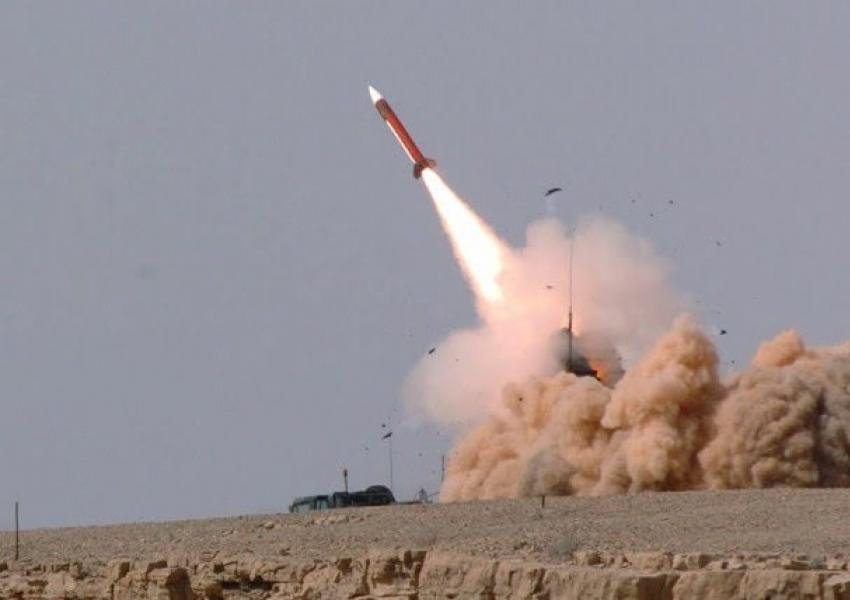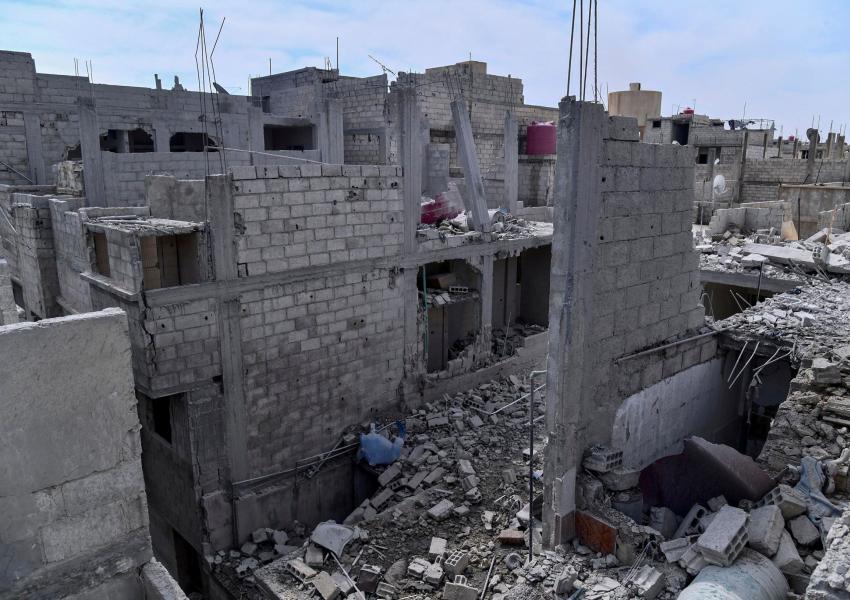
Press TV Rolls Out 'Syrian Girl' As Missile Lands Near Israeli Reactor
Iranian officials and media have not yet commented about the Syrian missile that landed near Israel's Dimona nuclear reactor in the early hours of Thursday [April 22]. Iranian media reports on the incident so far are only aggregates of international reports.
The heavy-water reactor is widely believed to produce material for Israel’s nuclear weapons program, which is conducted secretly outside the Nuclear Non-Proliferation Treaty and not open to the United Nations Atomic Energy Agency (IAEA).
The Israeli Defense Forces (IDF) denied there had been an attack on the Dimona reactor at the Shimon Peres Negev Nuclear Research Center. The IDF said an errant Syrian surface-to-air missile fired at an Israeli fighter jet exploded 30km (19 miles) from the facility, triggering air-raid sirens in the southern Israeli district of Abu Qrenat but causing no injuries or damage.
"Residents of Jerusalem and central Israel reported feeling reverberations of an explosion," the Times of Israel reported(link is external). “It was not immediately clear if this was caused by the impact of the Syrian missile or by a failed interception attempt.”
Iran’s English-language Press TV has mischievously broadcast an interview with Maram Susli − a Syrian-Australian conspiracy theorist, based in Australia and prolific on YouTube and popular with the far-right in the United States − saying Iran had been clear it followed "the policy of an eye for an eye."

"It is not a coincidence that four days ago an Iranian official said they should attack Dimona," said Susli, who was introduced by her nickname Mimi al-Laham, and who is also known as Partisan Girl, Syrian Girl and Syrian Sister told Press TV. "It is very likely that Iran had a role in this even if it was through Syria or Hezbollah."
Iranian officials have not directly threatened to attack Dimona. Susli may have been inspired by Kayhan newspaper, generally aligned with the principlists, which on April 17 advocated "an eye for an eye" in response to the April 11 attack on Iran's Natanz uranium enrichment facility, widely attributed to Israel. Kayhan was disappointed at President Hassan Rouhani, who on April 14 said activating new generation IR-6 centrifuges and starting uranium enrichment to 60% was Iran’s response to the Natanz attack.
Tensions have been high between Iran and Israel with the prospect of talks in Vienna reviving Iran’s 2015 nuclear agreement with world powers, which the government of Benjamin Netanyahu strongly opposes.
On April 6 the Iranian cargo ship(link is external) MV Saviz was attacked near the Yemeni coast in the Red Sea. The April 11 strike on Natanz was followed by an April 13 missile attack on an Israeli-owned ship(link is external) in the Gulf of Oman. Iranian officials blamed Israel in both cases, with Israeli officials refusing comment.
The Israeli military said that following the blast near Dimona, it had attacked several missile batteries in Syria including the one that fired the missile. The Syrian official news agency (SANA) said air defenses had intercepted the Israeli attack and downed most of the rockets fired at Damascus suburbs. SANA reported injuries to four soldiers and material damage.
According to Reuters(link is external), a Syrian military defector said the Israeli strikes targeted locations near the town of Dumair, some 40km north-east of Damascus, where Iranian-backed militias have a presence. Israel has hit the area repeatedly in past attacks.
Israel has vastly expanded air strikes on suspected Iranian missile and weapon centers in Syria, including some built underground. Attacks have gone well beyond those earlier in the Syrian war on supply routes to Hezbollah, the Lebanese group allied to both Iran and President Bashar al-Assad, and have not been restricted to areas near the Israeli border.
Janes defense analysts have said over three years, Israel had hit 955 targets with 70 percent of all its pilots involved. Israeli army Chief of Staff Aviv Kochavi said in December that over 500 Israeli strikes in 2020 alone had “slowed down Iran’s entrenchment in Syria” but insisted that “we still have a long way to go to reach our goals in this arena.”




